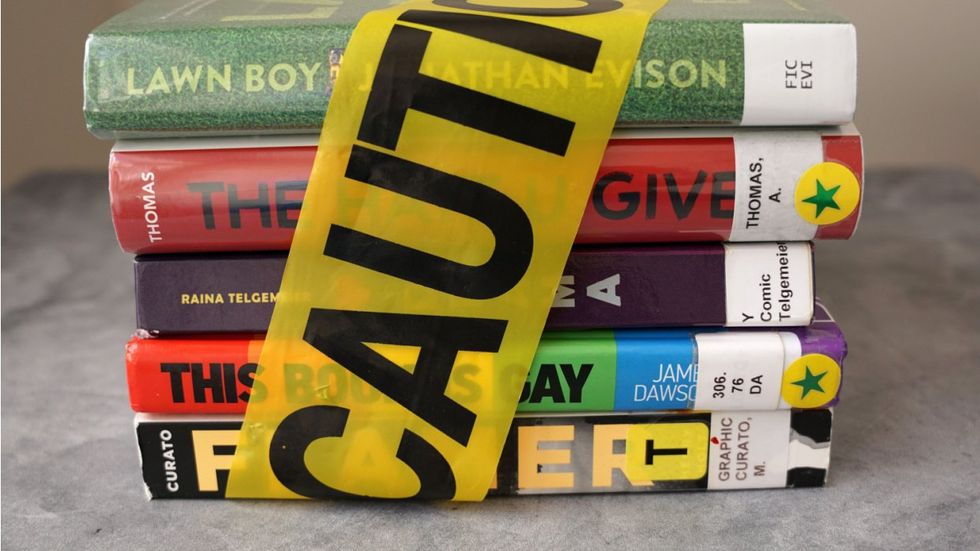A report by PEN America disclosed a 33 percent hike in book bans across U.S. public schools during the 2022-23 school year compared to the previous year. Titled “Banned in the USA: The Mounting Pressure to Censor,” the report identified Florida as the leading state in book bans, surpassing Texas, with over 40 percent of all bans happening in the state during this period.
PEN America began tracking book bans in July 2021, uncovering nearly 6,000 instances since then. The recent school year saw 3,362 bans impacting 1,557 unique titles and affecting the works of 1,480 authors, illustrators, and translators, according to a PEN America press release.
Across the country, these bans have specifically targeted books about LGBTQ+ themes and by queer authors.
The factors fueling the censorship trend include vaguely worded state legislations and rigorous pressure from local and national advocacy groups, thus elevating fears among school districts over potential legal liabilities and criminal penalties. Suzanne Nossel, Chief Executive Officer of PEN America, expressed her displeasure in the release.
“The toll of the book banning movement is getting worse. More kids are losing access to books, more libraries are taking authors off the shelves, and opponents of free expression are pushing harder than ever to exert their power over students as a whole,” said Suzanne Nossel, chief executive officer of PEN America. “Those who are bent on the suppression of stories and ideas are turning our schools into battlegrounds, compounding post-pandemic learning loss, driving teachers out of the classroom and denying the joy of reading to our kids. By depriving a rising generation of the freedom to read, these bans are eating away at the foundations of our democracy."
PEN America’s Freedom to Read program director, Kasey Meehan, pinpointed Florida’s significant role and it's "don't say gay" law, mentioning that the state is “providing a playbook for other states to follow suit,” including states like Iowa.
Meehan explained, "Hyperbolic and misleading rhetoric continues to ignite fear over the types of books in schools. And yet, 75 percent of all banned books are specifically written and selected for young audiences."
The report highlighted that over 75 percent of the banned books are designated for young adult or children’s audiences. PEN America also found an almost 400 percent increase in books being banned from classrooms and school libraries compared to the last school year.
In contrast to the burgeoning censorship, PEN America underscored a growing nationwide student-led resistance against book bans. It encouraged individuals to join the cause to challenge book bans and uphold the freedom to read, rallying under the banner of #FreeTheBooks.
"Students have been using their voices for months in resisting coordinated efforts to suppress teaching and learning about certain stories, identities, and histories; it’s time we follow their lead,” Meehan said.














































































